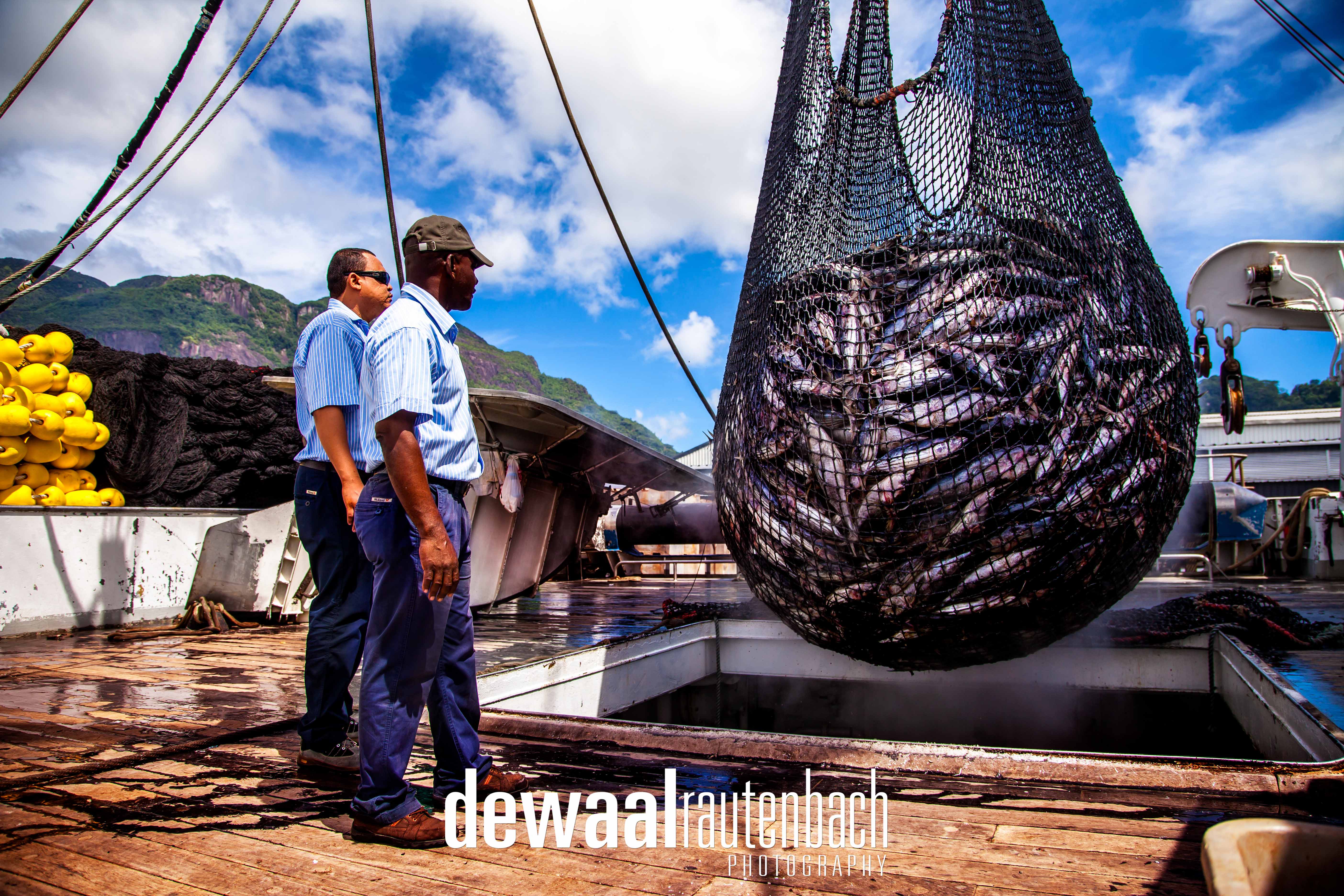
Essentially, stevedoring would have begun as early on as when ships started bringing goods into the country.
The "Seychellois" story of stevedoring as we know it today however can be said to have begun with a certain Capt. Jouanis. This gentleman built a lighter vessel (or barge) of 20 tons in the early 1900s, which was initially towed to and from the outer harbour by a pirogue of 12 oars. This lighter vessel and the fleet of new additions which followed would collect break bulk cargo to bring back to shore to be offloaded by stevedores at the port.
Mr. Jouanis eventually sold out his shares and the management of a newly amalgamated company called Union Lighterage was taken up by Mr. P.V Hunt in 1926, eleven years before he himself co-founded Hunt, Deltel.
Ironically, some fifty years after this, Capt. Edmond Houareau (former Managing Director of Hunt, Deltel and currently a Director on the board) assumed the direction of Union Lighterage where he remembers witnessing the first transhipment of frozen tuna from the storage hold of a French fishing vessel to the hatch of a reefer vessel in the port. "I remember receiving a call from Mr. Yves Cariou to tell me that we needed to round up men to discharge tuna." So Union Lighterage's stevedores were assembled as usual, however the work did not proceed as planned and the shift ended early. Work only resumed a day later when the stevedores were provided with boots and gloves in order to continue the arduous task!
Union Lighterage continued as the only stevedoring company until 1994 when it closed down. This opened the doors for the establishment of Land Marine as well as for the growth of Hunt Deltel which launched its own stevedoring department as a means of providing a more comprehensive package to the fishing vessels which it served and continues to serve today.
It is enlightening to listen to the anecdotes exchanged between the veteran managers in Hunt Deltel's Fishing Department, who have seen the ups and downs of stevedoring over the years; these are men who have worked very late nights and very early mornings for over two decades, sharing a passion for the hustle & bustle of commercial fishing operations. Looking back at the 90s they remember a surplus of job seekers at the gates of the fishing port, they reminisce the hilarious creole nick names the regular stevedores would give each other and how they would have to create resourceful solutions at a time when their working equipment was not necessarily as accessible and robust as it is today.
"I will never forget, on 31st December 1994, there were 12 French ships and 6 Spanish ships in port, and there were still more men at the port entrance eager to be given a shift! That night we handed out pay at 10pm and my wife even came down to help!" recalls Mr. Lyderic Chetty, now General Manager of Transport & Fishing at Hunt, Deltel.
He also remembers the company's very first stevedoring operation in 1994. There were just 2 gangs of stevedores on the company's payroll totalling 60 men, a far cry from the 250 men there are today. It was onboard the Spanish vessel 'Montelape' and he proudly recalls a new stevedoring record being set - 300 tons of tuna were offloaded over the previous average of 250 tons.
Mr. Francois Jules also remembers his first shift as stevedoring foreman a little later that year onboard another Spanish vessel called Mare de Sergio."I was a young duke at the time! I had been in the army and had been a sailor, but it was my first ever taste of the job. I remember thinking to myself how big both the vessel and the stevedores were!" Nevertheless, Mr. Jules’ colleagues are quick to ascertain how much presence Mr. Jules has always commanded on his working turf.
That said, Mr. Jules & Mr. Chetty couldn't help but lament a certain shift in attention from job seekers away from the stevedoring industry. The country's job market has become much more competitive, with opportunities in maintenance and landscaping forever on the increase. They also comment on how entwined the trade actually is in our country's fabric, with popular songs from Gilles Lionnet as well as Elijah making reference to the job.
Thus we believe it fitting to end this article on a high note, acknowledging the leaps we have made since the birth of stevedoring in Seychelles; From shifting less than 150 tons of tuna per vessel call in the 80s, a team of stevedores can shift up to 700 tons with the advances in mechanisation, an important representation of the increased economic significance of industrial fishing in Seychelles.
As for sustainable fishing practises, this is a topic of current discussion between fishing vessel owners and the Seychelles Fishing Authority, both of which have a vested interest in managing the stocks of our 'blue gold'.
